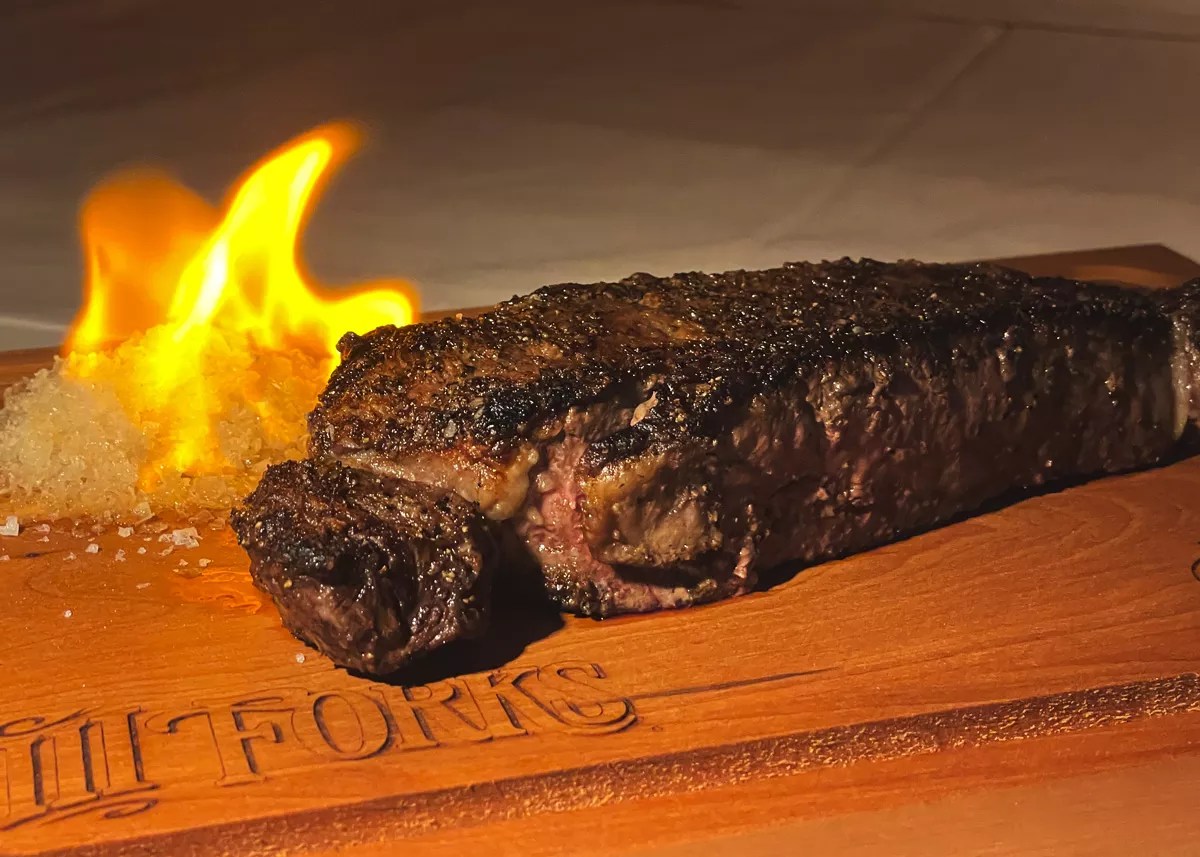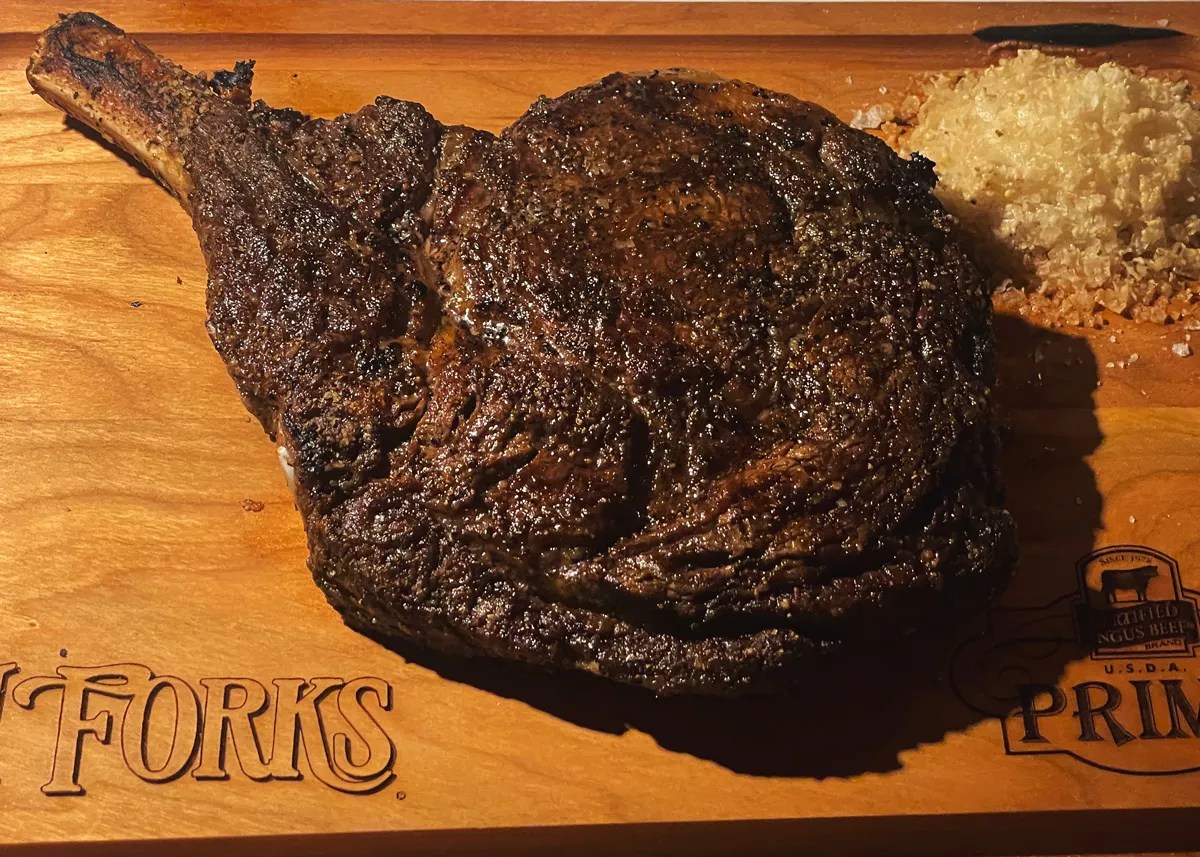
Aaren Prody

Audio By Carbonatix
Today’s food scene is stocked with fusion dishes that demand your attention, like a grilled burrito or smoked baby back pork rib ramen. See?
When we hear about dishes like these, our curiosity gets the best of us and, before you know it, we’re lined up with everyone else.
But while others create an entrance and demand a presence, some sneak onto a menu undetected. Or maybe quietly is a better way to put it. There’s not a steak that Dallas hasn’t put a char on.
As it turns out, there is a new(er) steak in town: a cross between Japanese wagyu and American Black Angus that has the famous buttery marbling but with the robust beef flavors that the states are known for. The result? American wagyu.
And it’s more common than you’d think.
You’ve probably seen wagyu on many menus around Dallas, but not all of it is as pure as we assume it is. It’s likely this American wagyu, which is how you can order “wagyu” fajitas for only $27. Most places just tend to leave off exactly what kind of wagyu it is because pure Japanese beef is a delicacy and is often priced generously by the ounce (easily a few hundred for a standard 6-to-8-ounce steak).
You could say it’s nearly a once-in-a-lifetime culinary experience for the average person, which is why cross-breeding has become so prominent. It’s not to bamboozle you into thinking you’re getting wagyu for a bargain price or being sold something fake. The aim is to bring a higher-quality steak to the American market.
The pioneers of the crossbreed, Snake River Farms, based in the Pacific Northwest, have been mastering the prized combination since 1989.
They imported purebred Wagyu cow and bull herds from renowned Japanese bloodlines to create the foundation of their beef program. Everything started in American Falls, Idaho, and now their farms have spread across the West as far as Jackson, Wyoming.
All their beef falls into four categories developed by synthesizing the USDA and international Beef Marbling Scale (BMS), which ranges from 1 to 12:
USDA Choice – BMS of 2 to 3, great flavor and tenderness, above-average steaks
USDA Prime – BMS of 4 to 5, includes only about 5% of all domestic beef
Snake River Farms Black Labelâ„¢ – American wagyu beef with a BMS of 6 to 8, superior to USDA Prime
Snake River Farms Gold Labelâ„¢ – American wagyu beef with a BMS of 9+ that delivers a rich flavor and buttery texture
But how does it compare to actual wagyu? We tried it to find out.

The Snake River Farms Gold Label Ribeye: 24 ounces of perfection.
Aaren Prody
Even at American wagyu’s pinnacle, the SRF Gold Label, purebred wagyu is still leaps and bounds ahead in all aspects: quality, marbling and complex flavors. Nonetheless, the American version might still be one of the most memorable steaks of your life.
If you’re wondering if you can get premium A5 Kobe beef on an Outback Steakhouse budget, unfortunately, no. However, the American crossbreed isn’t trying to be something it’s not; it wants to give you the best of both worlds.
And at a much more affordable price point.
III Forks Steakhouse recently announced its exclusive partnership with Snake River Farms to serve two iconic cuts to Dallas’s steak-obsessed market: the Gold Label 16-ounce NY Strip and the Gold Label 24-ounce bone-in ribeye. They’re priced at $136 and $179, respectively.
If you crunch some numbers, you’re looking at around $7-8 per ounce depending on which steak you order. By wagyu standards, that’s a bargain for the quality of steak you’re getting. And that’s what III Forks wanted: to introduce a higher-quality steak to the market without the massive price jump.